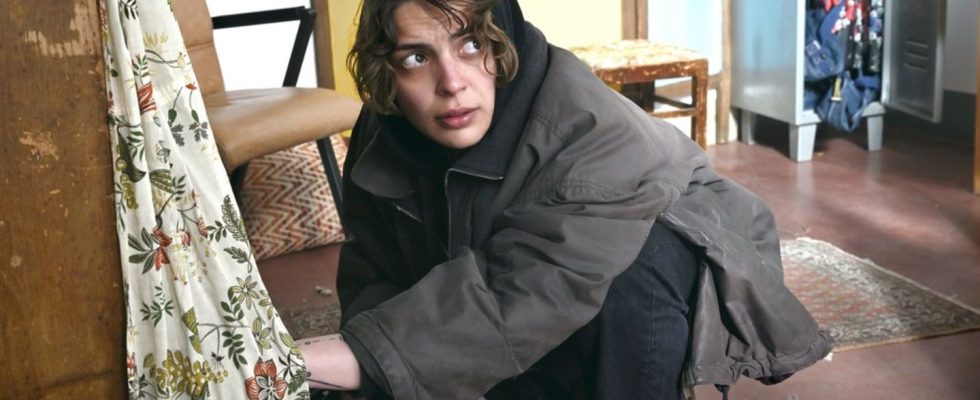“Crime Scene: What You Don’t See”
Brilliant film-breaking thriller
Sarah Monet (Deniz Orta) is tormented by uncertainty: Did she actually murder her own boyfriend?
© MDR/MadeFor/Hardy Spitz
In “Tatort: What you don’t see,” the Dresden investigative team goes on the hunt for a phantom-like serial rapist.
That’s what “Crime Scene: What you don’t see” is about
After a night of dancing, Sarah Monet (Deniz Orta, 32) wakes up in a complete nightmare: her dead boyfriend lies on her blood-stained bed, stabbed with a knife, on which only her fingerprints are found after the forensics arrive. She has no memory of what happened that night.
For Chief Detective Karin Gorniak and Chief Schnabel, the case is initially clear – all evidence points to a relationship act, probably under the influence of drugs. Only Commissioner Leonie Winkler doubts the supposed clarity of the situation. To her horror, the suspect is an old friend who she lost track of years ago. The re-encounter throws them back into their own past.
She desperately tries to convince her colleagues of the innocence of the imprisoned Sarah Monet, but is soon removed from the case out of bias. Even the alleged perpetrator’s complete lack of film makes her doubt her own innocence. During the interrogation she asks herself: “What if it was me? I have no idea. I wasn’t there. Maybe my body, but not me.”
It is only the laboratory findings that shake the seemingly clear evidence and move the further investigative work: traces of Ko-drops are found in her blood – who could have administered them to her remains completely unclear. Monet, who remains a suspect, is released back into the wild with an electronic ankle bracelet. Inspector Gorniak puts her old friend up in her parents’ former holiday home – from which, to her horror, she disappeared the next morning.
Meanwhile, more cases are coming to light in the city in which women were apparently drugged with co-eds and raped in their homes. It is now clear that the Dresden investigators are dealing with a perfidious serial criminal who appears to leave no trace of his crimes. A breathtaking hunt for the Phantom begins and ultimately drives the plot towards a dramatic showdown.
Is it worth turning on?
Yes. With “Tatort: What you don’t see” there is finally another Sunday crime thriller that does not contain any inflated whodunit constructions, wooden investigative rhetoric or grotesque silliness. The new case by the Dresden investigative team Gorniak, Winkler and Schnabel is a cinematically staged thriller that tackles a highly sensitive topic – serial rape using knock-out drops – with a lot of respect and emotional intensity, without neglecting the action to let come.
The absolute loss of control and the anxiety attacks of the deeply disturbed main suspect are impressively staged by the director Lena Stahl (44) and her cameraman Kaspar Kaven (42). From the very beginning there is a high level of intensity over the action, which lasts throughout the entire 90 minutes and keeps the viewer excited for every second.
In addition to the professional film language and the cleverly constructed script, the perfectly cast actors also help ensure that this crime scene continues to resonate in the viewer’s head even after the dramatic final act. Particularly noteworthy is the impressive acting performance of Deniz Orta in the role of Sarah Monet. The actress was already seen as a supporting actress in Berlin’s “Tatort: Animals of the Big City” in 2018 and took part in the role of Maïssa Issam in the first season of the Netflix series “Dogs of Berlin”.

